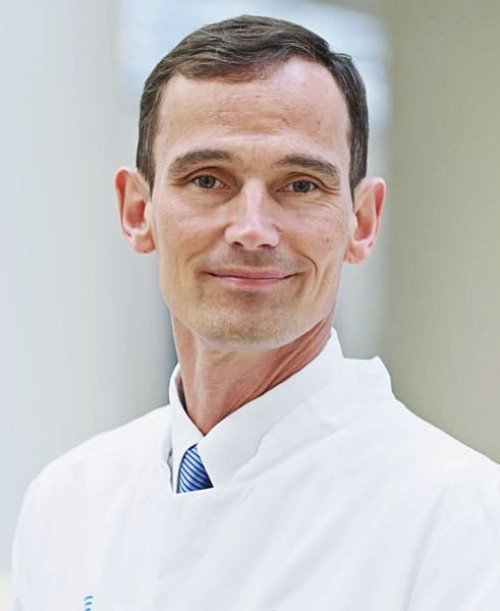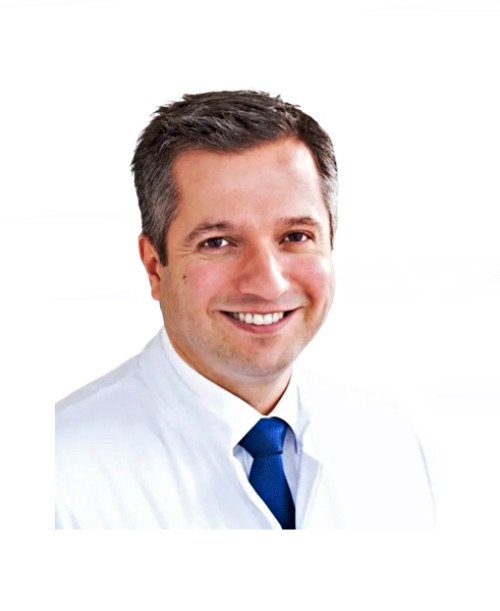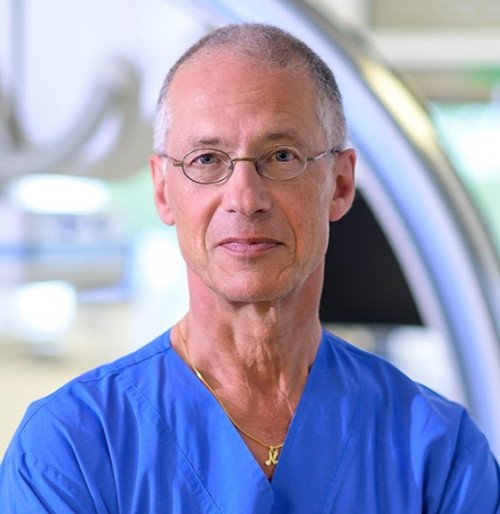Introduction
The Department of Cardiology and Angiology is a specialist medical unit dedicated to the diagnosis, treatment, and prevention of heart and vascular diseases. This section combines the skills of cardiologists (who treat cardiac disorders) with algologists (who handle blood vascular illnesses).
By combining these two specialties, the department delivers comprehensive treatment that tackles the complex interaction between the heart and the vascular system, ensuring that patients get the best possible medical care.
Services Offered
1. Cardiology services:
Preventive Cardiology: Aims to reduce the risk of heart disease by lifestyle changes, drugs, and frequent monitoring. This involves addressing risk factors including hypertension, high cholesterol, diabetes, and obesity.
Interventional Cardiology: Uses techniques such as angioplasty and stent implantation to unblock blocked arteries, restore blood flow, and prevent heart attacks. These less invasive techniques frequently have faster recovery periods than standard surgery.
Electrophysiology: Diagnoses and treats abnormal cardiac rhythms (arrhythmias). This involves catheter ablation and device insertion, such as pacemakers and defibrillators.
Heart Failure Management: Offers comprehensive treatment to patients with heart failure, including drugs, lifestyle adjustments, and sophisticated therapies such as ventricular assist devices (VADs) and heart transplants.
Cardiac Imaging: Uses modern imaging methods including echocardiography, cardiac MRI, and CT angiography to identify heart problems. These non-invasive examinations provide thorough images of the heart's anatomy and function, facilitating accurate diagnosis and therapy planning.
2. Angiology Services:
Peripheral Artery Disease (PAD) Management: Diagnoses and treats diseases that impact blood flow to the limbs, often by lifestyle changes, drugs, and treatments such as angioplasty or bypass surgery.
Aneurysm Care: Monitors and manages aneurysms, including surgical procedures to avoid rupture and consequences.
Venous Disorders: Treats varicose veins, chronic venous insufficiency, and deep vein thrombosis (DVT) using medicines, compression treatment, and minimally invasive procedures.
Carotid Artery Disease: Treats narrowing of the carotid arteries to avoid strokes by procedures such as carotid endarterectomy or stenting.
Vascular Imaging: Uses non-invasive imaging methods such as Doppler ultrasonography, MR angiography, and CT angiography to see blood vessels and identify problems.
Integrated Care Approach
The Department of Cardiology and Angiology uses an integrated care model to address the interconnected elements of heart and vascular health. This collaborative paradigm guarantees that patients get complete treatment, particularly those with coronary artery disease, peripheral artery disease, or heart failure. Multidisciplinary teams collaborate to develop tailored treatment plans that suit each patient's specific requirements, therefore improving results and quality of life.
Diagnostic Techniques
Electrocardiogram (ECG): Assesses the electrical activity of the heart to identify arrhythmias, ischemia, and other abnormalities. It's a rapid, non-invasive test that yields instant results.
Echocardiography: This technique uses ultrasonic waves to produce pictures of the heart, allowing for the evaluation of heart function, anatomy, and blood flow.
Cardiac Catheterization: Inserting a catheter into a coronary artery to diagnose and treat heart problems. This method enables direct imaging of the coronary arteries and may include procedures such as angioplasty.
Doppler Ultrasound: This technique uses sound waves to assess blood flow in blood vessels, which aids in the diagnosis of illnesses such as PAD and DVT.
CT and MR Angiography: Advanced imaging technology is used to provide detailed pictures of blood arteries, which help in the detection of aneurysms, blockages, and other vascular disorders.
Treatment Options Medicines: These include antihypertensive, antiarrhythmic, anticoagulant, cholesterol-lowering, and other medicines designed to treat particular cardiac and vascular disorders. Medications help to manage symptoms, avoid problems, and improve results.
Surgery: This includes coronary artery bypass grafting (CABG), heart valve replacement or repair, aneurysm repair, and arterial bypass surgery. These treatments are carried out by qualified surgeons to treat serious or life-threatening disorders.
Minimally invasive procedures: These include balloon angioplasty, stenting, catheter ablation, and endovascular aneurysm repair (EVAR). These techniques have faster recovery periods and lower risks than regular surgery.
Lifestyle adjustments: Focuses on nutrition, exercise, smoking cessation, and other lifestyle adjustments to promote heart and vascular health. Patients are guided and supported in making long-term adjustments that improve their overall health.
Cardiac and Vascular Rehabilitation: Comprehensive programs that include physical therapy, education, and support to help patients recover and manage chronic diseases. These programs aid patients in regaining strength, improving function, and lowering their risk of future health problems.
Preventive Measures
The Department of Cardiology and Angiology places a strong emphasis on prevention. The department provides educational programs for:
Healthy Eating: Encourages heart-healthy, vascular-friendly meals high in fruits, vegetables, lean meats, and whole grains. Nutritionists collaborate with patients to create tailored dietary programs.
Regular Exercise: Aim for at least 150 minutes of moderate-intensity exercise each week to promote cardiovascular and vascular health. Training professionals provide customized training routines and track progress.
Smoking Cessation: Offers information and assistance to assist patients in quitting smoking, which is a significant risk factor for both heart and vascular disease. Counseling, medicine, and support groups are all components of smoking cessation programs.
Regular Screenings: Routine check-ups and screenings are recommended to discover heart and vascular issues early on. Regular monitoring assists in detecting problems early when they are most curable.
Research & Innovation
The Department of Cardiology and Angiology is a leader in medical research, always looking for new and creative ways to treat patients and enhance their quality of life. They also use cutting-edge technology and clinical trials to do this.
The department works with research institutes to develop new medications and interventions, ensuring that patients benefit from the most recent medical advances. Advanced diagnostic tools, less invasive procedures, and new medication development are among the research fields.
Patient Education and Support.
Patient education is important to the department's aim. The team offers materials and assistance to help patients understand their diseases, treatment alternatives, and the lifestyle modifications required for optimum health.
Support groups and counseling programs are also available to help patients and their families cope with chronic diseases and navigate the healthcare system. Educational materials, seminars, and online tools are available to help patients gain information and skills for self-management.
👉 Contact us for further information and receive a complimentary consultation.
The department tackles a variety of conditions, including coronary artery disease, heart failure, arrhythmias, peripheral artery disease, aneurysms, venous problems, and carotid artery disease. Chronic and acute diseases are treated comprehensively.
During your initial appointment, you may expect a complete assessment that may include a physical examination, a review of your medical history, and diagnostic tests such an ECG, echocardiogram, or Doppler ultrasound. Based on the results, the team will create a unique treatment plan for your requirements and problems.
To lower your risk, live a healthy lifestyle that includes a balanced diet, frequent exercise, quitting smoking, managing stress, and regular health checks. To assist these efforts, the department provides preventative programs that provide knowledge and tools to help you make informed decisions.
The department makes use of the latest technologies, including minimally invasive treatments, enhanced imaging methods, new medicines, and innovative therapies developed via continuous research and clinical trials. These developments seek to improve patient outcomes, shorten recuperation periods, and increase therapy efficacy.
To schedule an appointment, contact the department directly via their phone number or website. Depending on your health insurance plan, you may also need a referral from your primary care physician. The department's administrative team will help you schedule and offer information about any required preparations.
Experience the difference that expertise and compassion can make. Meet our exceptional team of experienced doctors, and trust us to provide you with the best in healthcare.

Cardiology and Angiology
Chief Physician in Cardiology and Angiology
Muenster / Münster



.webp)
 (1).webp)

.webp)
 (1).webp)


.webp)
 (1).webp)

.webp)
 (1).webp)
